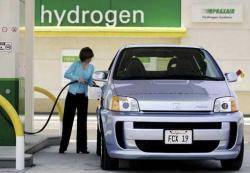 Post prepared jointly with Iñaki swept
Post prepared jointly with Iñaki swept
Does it have a future in electric cars in the Basque Country?
Last week a notice appeared in the Post Office with the following headline“The boom of electric cars in the Basque Country is collapsing”, referring to Hiriko’s financing problems, the lack of demand for the electric Mercedes van and the lethargy of the “electrolineras” network. Undoubtedly, the newspaper headline gives way to important questions and opens an important energy-industrial debate in the Basque Country that we want to join from Naider.
Do the latest data mean that the electric car route is exhausted and that its momentum should be abandoned? Definitely not, but this does not imply that it is not necessary to change the policies put in place
As evidenced by a recent study From the University of Duisburg-Essen for the European Commission, the electric car, despite the harsh market vicissitudes it is currently going through (40,000 registered vehicles worldwide and 11,563 in Europe in 2011), has arrived for stay permanently. World experts in the automotive sector estimate that the production costs of electric vehicles will be reduced by 50% by 2020 and by 70% by 2030, catching up and competing in terms of equality with conventional vehicles. All of this is mainly due to economies of scale related to the progressive increase in demand (see graph).
Likewise, the magnitude of the commitment of the industry as a whole to electromobility is evident in the strategies of all the large automobile manufacturers that are investing heavily in new models of electric vehicles, either by integrating electrical systems into the traditional models or developing specific electric models (Zoe by Renault, C-zero by Citroen, e-up by Wolswagen, e-tron by Audi or the i3 and i8 models by BMW). They are all committed to the electric vehicle revolution and are deploying different strategies to position themselves in this new market.
And what does this imply for the Basque Country?
The implications are very clear: the electric vehicle opens up business possibilities in the medium and long term for the dynamic and competitive Basque automotive cluster (more than 300 companies and 35,000 jobs), which encompasses practically the entire production value chain. of motor vehicles. Given the paradigm of the electrification of transport, storage systems, electric motors, power electronics, the development of new (light) materials adapted to the electric vehicle or the services that electromobility entails, stand as natural lines of intelligent specialization for which the Basque Country has differential competitive advantages, adding to its business potential its notable scientific-technological capabilities in these areas. According to estimates from the University of Duisburg-Essen, currently 70% of the added value of vehicle production in Europe is found in the supply chain and this percentage will grow to 79% with electric vehicles.
And what policies are the most appropriate to position yourself in the electric vehicle?
From our point of view, the key lies in innovation and in that the Basque industry, in a great collaborative effort that includes not only the automotive cluster, but also those of electronics, machine tools, or energy, among others, face the challenge of developing new products and services in the fields of application offered by the renewed mobility models based on electric vehicles.
And for this, without a doubt, a great change of direction is needed in European policies and also in the Basque Country, for the promotion of electric vehicles. In our opinion, they have placed excessive weight on directly subsidizing the final demand for vehicles in an effort against nature that has been highly disappointing in view of what has been achieved and is financially unsustainable for the public coffers.
In the case of the Basque Country, the electric vehicle promotion policy must clearly mark its commitment and establish its first priority in business innovation, which can be complemented with energy initiatives to raise awareness, promote electric vehicles with non-monetary benefits (possibility use of bus lanes, advantages in parking and circulation in cities, etc.), public purchasing and support to promote the use of electric vehicles by specialized users “early adopters” – fleets of public sector vehicles, commercial distribution fleets, public transport, taxis, rental vehicles, car sharing, etc. – leaving indiscriminate subsidies for the purchase of electric vehicles by individuals and the implementation of “electrolineras” for when the technology is more mature; In this sense, the French postal service, La Poste, has led the purchase of 50,000 electric vehicles for a conglomerate of companies that include Air France, France Telecom Orange, etc.
The electric car is a long-distance race in which you have to maintain a high pace, to be in the leading group and above all not to collapse and give up at the first faint, as this does not mean that we cannot reach the podium. Mercedes and Hiriko are two important companies, but the electric vehicle in the Basque Country goes much further and can continue to be a great opportunity for the Country. As we have seen, the market continues to exist and we have the people, companies and institutions that are needed to believe that we can take advantage of it.
Photo:Adventures of Pam & Frank via Flickr